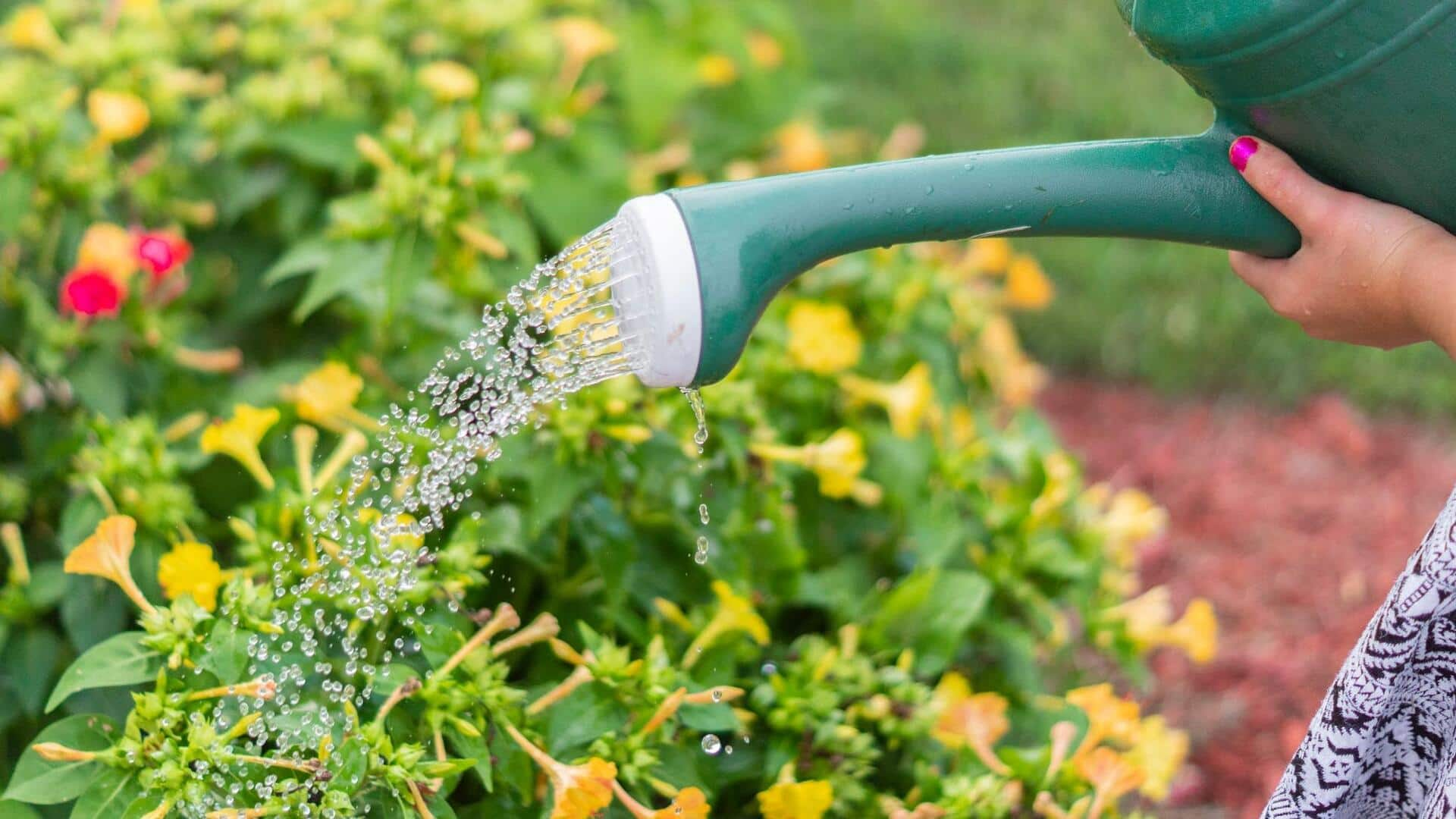
Implementing effective water conservation in your garden like a pro
What's the story
Water conservation in gardens is no longer an option but a necessity as the world grapples with increasing water scarcity issues. A well-implemented water conservation strategy does more than just save water; it cuts down your water bill and fosters healthier growth for your plants. So, here are some actionable tips on how to save water (and your money) in your garden efficiently.
Plant selection
Choose the right plants
Choosing drought-resistant plants is a wise decision for any garden. They require less water once established, eliminating the need for daily watering. And, opt for native plants - they are accustomed to the local climate and soil conditions, hence more resilient and less reliant on watering. By choosing the right plants, you can conserve up to 50% of water compared to what you would use for non-native or high-water-demand plants.
Soil enhancement
Improve your soil
Improving your soil's moisture retention is key to saving water. Incorporating organic matter like compost or well-rotted manure hugely enhances the soil structure and its ability to retain moisture. This ensures water is released to plants over a more extended period, negating the need for regular watering. A good soil structure can decrease the requirement of watering by up to 25%.
Mulch application
Mulching is key
Mulching around your plants can significantly cut evaporation from the soil surface, helping it stay damp for extended periods. Organic options such as wood chips or straw have the added benefits of retaining moisture, suppressing weed growth, and enriching the soil with nutrients as they break down over time. A two- to three-inch layer of mulch can reduce watering requirements by roughly 20%.
Watering methods
Efficient watering techniques
Watering your garden efficiently is key to saving water. Drip irrigation systems are a game changer as they supply water directly to the root zone of each plant, significantly reducing evaporation losses compared to traditional sprinkler systems that can waste up to 50% of water to evaporation and runoff. Watering early in the morning or late in the evening when temperatures are lower will also limit evaporation losses.
Rainwater harvesting
Collect and reuse water
Using barrels to collect rainwater or installing a rainwater harvesting system offers a great source of free, soft water ideal for gardening needs. Utilizing collected rainwater lessens your reliance on tap water and potentially saves you a substantial amount on your water bill over time. Also, you can consider reusing greywater from baths, showers, and sinks, provided it's appropriate and safe for garden use.